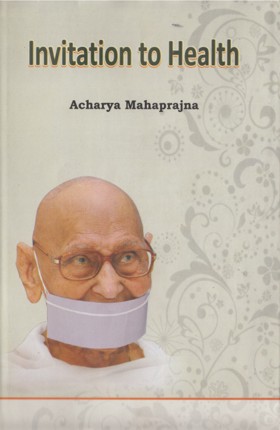Necessity Of Anuvrata Cannot Be Denied
There are two poles. The Northern pole is restraint and the Southern pole is expectation.
Expectation is positive. Where there is expectation there is life. Where there is expectation there is development. Where there is expectation there is attachment. On the axis of expectation all tendencies are mobile. Restraint is negative. Where there is restraint there is consciousness. Where there is restraint there is experience of truth. Where there is restraint there is detachment.
For living (worldly) involvement, development and attachment are necessary. For making life pure and holy withdrawal (from worldly activities), experience of consciousness, truthfulness and detachment are necessary. Expectation: on the verge of peril
It is impossible that in a social being there is no expectation and attachment. If he has only expectation and attachment and no capacity to control them then he becomes dangerous for himself and for others. To be aware of this danger is named as Aṇuvrata. Everyone gets cautious when the water level of a river reaches danger mark. Expectation is a big river. Its water level reaches danger mark but even then, human being does not become cautious. In such situation arise crimes, terror, murders and immorality. Aṇuvrata movement is meant to caution those who do not become aware of the danger.
A person wants happiness, wants amenities, wants enjoyment, and wants this and that. Everyone wants. To desire happiness means to desire the means to be happy. To desire the means of happiness, means to desire to get those means. Everyone wants to get the means of happiness. In such a situation, it is inevitable to have combats and conflicts. In this situation alone contest and competition or race increases. On this point immorality arises.
Catch the root
The philosophy of Aṇuvrata is to limit the happiness, to change the attitude of living in comforts; not to have illegitimate claim on happiness and means of happiness. Is this acceptable to a human being of today? If a human being of today does not want corruption in society, does not want immoral behaviour, then there is no alternative to his belief; Aṇuvrata is inevitable. If the stream of immorality continues to flow and we wish to dry up one current only then how much it can be meaningful? We believe more in sprinkling water on leaves and flowers, pay less attention to watering the roots and therefore the leaves and flowers also get shrunk. The builder of modern China Mao learnt a lesson from his mother. During sickness of the mother Mao took the responsibility of taking care of flowers. He sprinkled water on flowers. The plants got shrunken. The mother returned after recovery. Looking at the shrunken plants she said, "It seems that you have not watered these plants." Mao replied, "I have watered them very smartly. I have watered every flower. The mother said, "Oh my son! You do not understand. If the roots are watered, then flowers blossom and if flowers are watered then everyone gets shrunk." Mao wrote, "From this I learnt a lesson that without getting at the root of the problem it cannot be solved." We want to solve the problem of corruption without catching its roots. Our effort of this sort will never be successful.
Proclamation of Aṇuvrata
Restraint is life; this is the proclamation of Aṇuvrata. Human being likes non-restraint, to be unfastened. Who wants control over wishes, on senses? There may be control of police or of power of punishment but human being does not want to exercise control on oneself. Crime, violence all these are consequences of non-restraint and that is why non-restraint is called death. If some person dies of hunger, then the opposition takes the government to task. By non-restraint or by excessive eating thousands of people meet untimely death. No one pays heed to that. Use of intoxicants is killing untimely how many people! Then it is not difficult to understand that non-restraint is death. Had the value of restraint been recognized then the accusation of corruption on state machinery and government officials would never have been there. There is non-restraint and it is wide spread and because of this only these events recur.
Let there be situation of drawing limits
Discipline of one’s self by one’s own self, this is the definition of Aṇuvrata
Had the intension of this definition been taken to heart, the society would not have suffered black night. The important principle of Aṇuvrata philosophy is, 'be the master of senses and mind, do not be the servant'. For its realization, the situation of drawing limits is required. It is not possible to think of a society totally free from violence and possessiveness. But to remain free from the limits in violence and possessiveness is not beneficial for society. Today innocent human beings and creatures are being killed. Had there been limits to violence this would not have happened. One human being is regarding another as untouchable. Had there been limits to violence this would not have happened.
Twenty-three crores (one crore = ten million) of people are living below the poverty line. Had there been limit to individual ownership then this would not have happened. If there were limits to possession, then there would not have been a confluence of multistoried buildings and hutments. Only sky is limitless. Limitlessness of non-restraint is not desirable for individual and for society also. Meaning of society is acceptance of restraint. It is not self-willed, it is imposed by government. Aṇuvrata means acceptance of restraint, and it is self-willed and not imposed by establishment.
Aṇuvrata is a necessity. A society bereft of morality cannot be healthy. Whether you like it or not, if a healthy society is to be created then it is necessary to have the proclamation that 'Restraint alone is life' and that it necessary to have the acceptance of Aṇuvrata
 Acharya Mahaprajna
Acharya Mahaprajna
